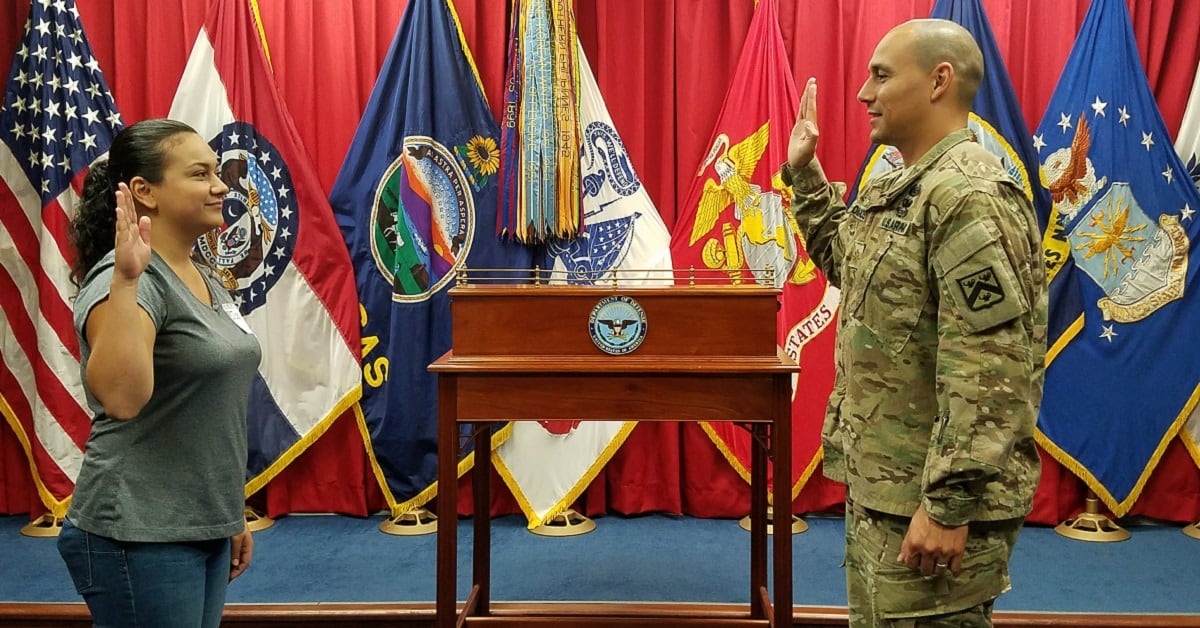The director of the Defense Health Agency said she is aware of concerns that have been expressed about the health care military children have received, and whether it “shows up” when they’re trying to enter the military.
“We need to look at that … because, for me, I don’t want to deny somebody the care that they need,” Navy Vice Adm. Raquel Bono said Thursday during a leadership breakfast hosted by the National Military Family Association. “At the same time, I know it’s extremely important that we document everyone’s care so that we can give that comprehensive service and support to their health care,”
Information was not immediately available about whether Defense Department officials have taken steps to address the issue.
A defense health spokesman said previously that the practice of combining the records has been in effect since 2004, when an electronic medical records system was implemented, but the policy was put into place in 2010.
Military Times has reported on the service branches’ practice of combining the electronic medical records of military children with their active-duty medical treatment record, when they join the military, giving their military medical providers access to those prior records. The services don’t have that access to records of recruits from civilian families.
RELATED

One Army major’s daughter was forced out of Air Force basic training because of notations in her medical record that she and her parents weren’t aware of, related to counseling she’d received to help her cope with her frequent moves, and her father’s deployments. She was denied a waiver by the Air Force to re-enter, despite multiple clean bills of health from civilian and DoD behavioral health providers.
Her younger sister has been denied a waiver to enlist in the Army, also because of notations in her dependent medical record — and also despite multiple clean bills of health.
Bono made the comments in response to a question about what she sees as the biggest challenge for military children today, given that a number of future service members are children of today’s service members. Bono said DoD health officials pay close attention to this fact in determining how to position themselves to be responsive in the future.
“About 30 percent of our family members end up being part of the military down the road,” Bono said. “How do we make sure all of our family members are positioned with their health, and the care they receive in our system, to pursue what they need either in the military or elsewhere?”
Military Times has received a number of responses from families who have said their children were forced out of the military because of issues noted in their dependent medical records.
Defense and service officials have encouraged service members and families to seek help, and constantly say they won’t be punished for doing so. But Army Maj. Rudy De La Rosa said that in his case and those of and other military parents, “our children are not protected. We are not told that DoD clinicians are building their permanent military health record that will follow them their whole lives.”
Karen has covered military families, quality of life and consumer issues for Military Times for more than 30 years, and is co-author of a chapter on media coverage of military families in the book "A Battle Plan for Supporting Military Families." She previously worked for newspapers in Guam, Norfolk, Jacksonville, Fla., and Athens, Ga.





